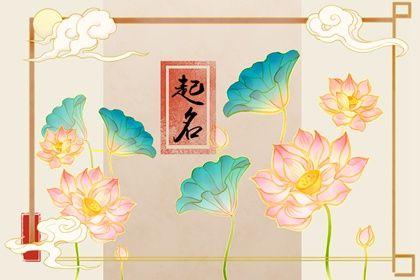如何从寓意好的文言词中选取佳名呢
- 作者: 李竞琛
- 来源: 投稿
- 2024-09-25
一、如何从寓意好的文言词中选取佳名呢
从寓意好的文言词中选取佳名的步骤:
1. 确定寓意:浏览文言词典或古籍,寻找寓意吉祥、美好、有内涵的词语。
考虑词语的字面意思、引申义和文化背景。
2. 筛选词语:选择寓意符合个人期望和愿望的词语。
避免使用过于生僻或晦涩的词语,以免影响日常使用。
3. 考虑字音和字形:
选择字音悦耳、朗朗上口的词语。
注意字形美观,避免使用笔画过多或结构复杂的字。
4. 结合姓氏:考虑词语与姓氏的搭配,避免出现不和谐或拗口的组合。
尽量选择与姓氏字音或字形相近的词语,增强名字的整体感。
5. 避免重复:查阅相关资料,确保所选词语尚未被广泛使用。
避免使用与流行名字或名人名字相近的词语,以免缺乏独特性。
6. 征求意见:与家人、朋友或专业人士分享所选词语,征求他们的意见和建议。
综合各方反馈,做出最终决定。
示例:文雅: 芷兰、清风、明月
吉祥: 福禄、安康、如意
才华: 翰墨、丹青、锦绣
品德: 仁义、礼智、信
健康: 康健、长寿、安泰
二、如何从寓意好的文言词中选取佳名呢作文
如何从寓意好的文言词中选取佳名
文言词,承载着中华文化的精髓,蕴含着丰富的寓意。从中选取佳名,既能彰显文化底蕴,又能寄托美好的祝愿。以下方法可供参考:
一、查阅典籍,寻觅佳词
翻阅《诗经》、《楚辞》、《论语》等经典著作,从中寻找寓意吉祥、内涵丰富的文言词。如:
安然:《诗经·小雅·常棣》:“兄弟既翕,和乐且耽。”寓意和睦安宁。
嘉言:《论语·子路》:“君子一言,以为善。”寓意言辞美好,品德高尚。
明德:《大学》:“大学之道,在明明德。”寓意品德高尚,光明磊落。
二、结合姓氏,巧妙搭配
在选择文言词时,应考虑与姓氏的搭配。如:
姓氏为“王”者,可取名“王嘉”或“王明德”。
姓氏为“李”者,可取名“李安然”或“李嘉言”。
三、注意字义,寓意吉祥
选取的文言词应寓意吉祥,寄托美好的祝愿。如:
福:寓意福气满满,幸福安康。
禄:寓意官运亨通,财源广进。
寿:寓意健康长寿,福寿绵长。
四、避免生僻字,便于书写
虽然文言词寓意深刻,但应避免使用生僻字,以免书写困难或造成误解。如:
可用“安”代替“翕”。
可用“美”代替“嘉”。
可用“德”代替“明德”。
五、结合性别,选择合适
文言词的寓意往往与性别相关。如:
安然:适合男女。嘉言:适合男性。
明德:适合女性。
六、参考名家,借鉴佳作
历代名家为后人留下了许多寓意美好的佳名。如:
苏轼:苏轼之子苏迈,字子由,寓意“迈向远方”。
王安石:王安石之子王雱,字元泽,寓意“泽被苍生”。
通过以上方法,我们可以从寓意好的文言词中选取佳名,既传承了中华文化,又寄托了美好的祝愿。

三、如何从寓意好的文言词中选取佳名呢英语
How to Choose an Auspicious Name from Classical Chinese Words
In Chinese culture, names are not merely labels but carry significant meaning and symbolism. Parents often choose names for their children that reflect their hopes, aspirations, and values. Classical Chinese literature is a rich source of auspicious words and phrases that can be used to create meaningful and memorable names.
1. Identify Auspicious Words and Phrases
The first step is to identify auspicious words and phrases from classical Chinese literature. These words and phrases typically convey positive meanings such as:
Longevity (e.g., 寿, 福)
Prosperity (e.g., 财, 富)
Health (e.g., 康, 健)
Wisdom (e.g., 智, 慧)
Virtue (e.g., 仁, 义)
2. Consider the Context
When selecting words and phrases, it is important to consider their context within the original text. This will help you understand the full meaning and significance of the words. For example, the word "寿" (longevity) may appear in a poem about a wise old man, suggesting that it is not only a wish for a long life but also a symbol of wisdom and experience.
3. Combine Words and Phrases
Once you have identified auspicious words and phrases, you can combine them to create a unique and meaningful name. For example, the name "康健" (health and well-being) combines the words "康" (health) and "健" (well-being).
4. Consider the Tone and Meaning
When choosing a name, it is important to consider the tone and meaning of the words. Some words may have multiple meanings, so it is important to choose words that convey the desired meaning. For example, the word "明" can mean both "bright" and "clear," so it can be used to create names that convey intelligence or clarity of thought.
5. Seek Professional Advice
If you are unsure about the meaning or pronunciation of a particular word or phrase, it is advisable to seek professional advice from a Chinese language expert or a feng shui master. They can help you choose a name that is both auspicious and meaningful.
Examples of Auspicious Names from Classical Chinese
文轩 (Wénxuān): Literary elegance
子衿 (Zǐjīn): Scholarly aspirations
若水 (Ruòshuǐ): Gentle and yielding
清风 (Qīngfēng): Refreshing breeze
明德 (Míngdé): Bright virtue
四、古文中带有寓意好的字有哪些
吉祥如意吉:吉祥、幸福
如:顺遂、如意
意:心愿、志向
福禄寿喜
福:福气、幸福
禄:俸禄、官职
寿:长寿
喜:喜悦、欢乐
平安康泰
平:平安、安定
安:安宁、舒适
康:健康、安康
泰:安泰、吉祥
富贵荣华
富:富有、富裕
贵:尊贵、显赫
荣:光荣、荣耀
华:繁华、富丽
和睦美满
和:和睦、和谐
睦:亲睦、友爱
美:美好、美丽
满:圆满、充足
兴旺发达
兴:兴盛、繁荣
旺:旺盛、兴旺
发:发展、进步
达:通达、成功
才华横溢
才:才能、本领
华:光彩、才华
横:横贯、全面
溢:溢出、丰富
德才兼备
德:品德、道德
才:才能、本领
兼:兼有、具备
备:齐全、完备
学富五车
学:学问、知识
富:丰富、充实
五:众多、广博
车:载物之具,比喻知识渊博
才高八斗才:才能、本领
高:高超、杰出
八:众多、广博
斗:量器,比喻知识渊博
